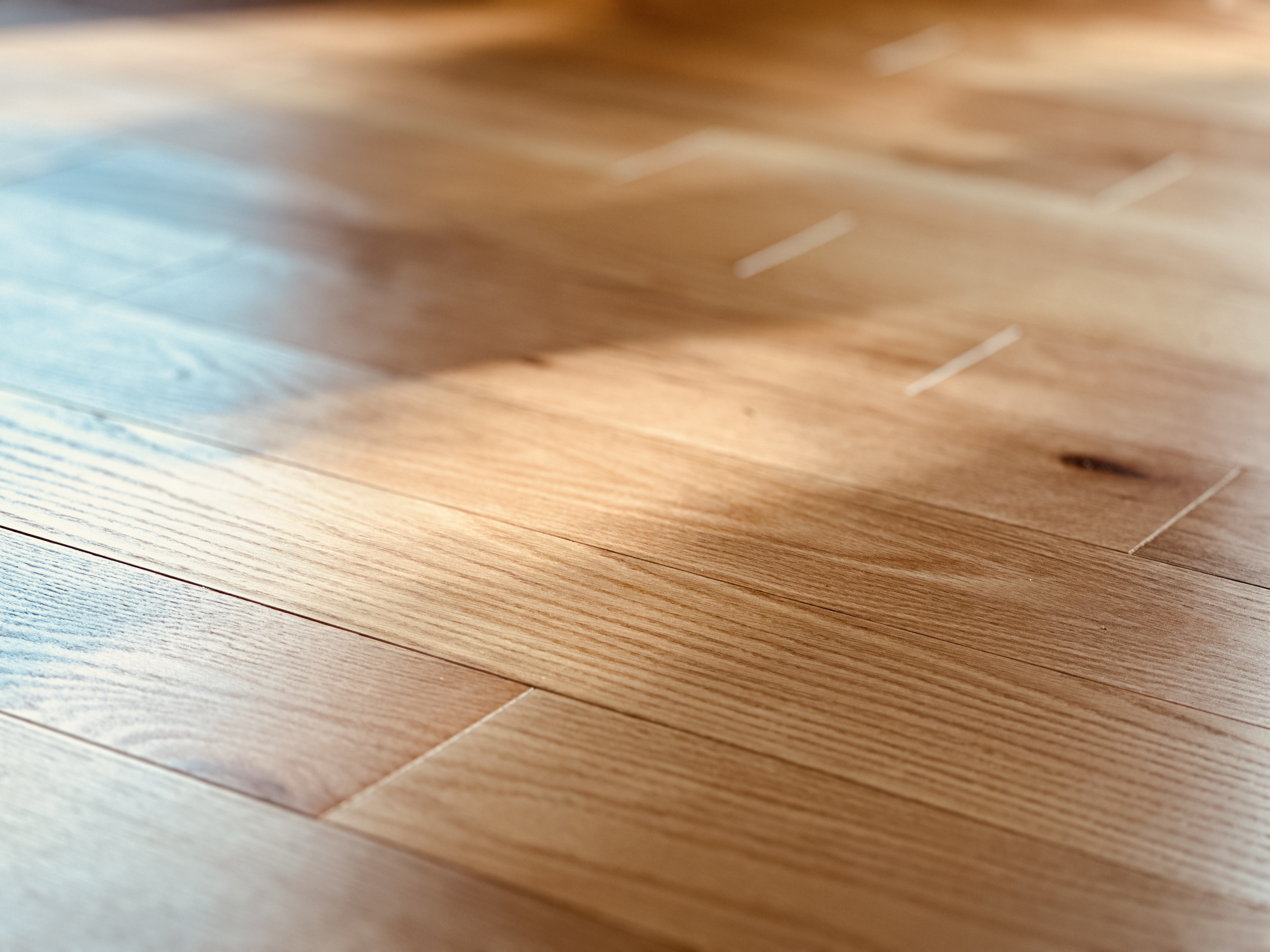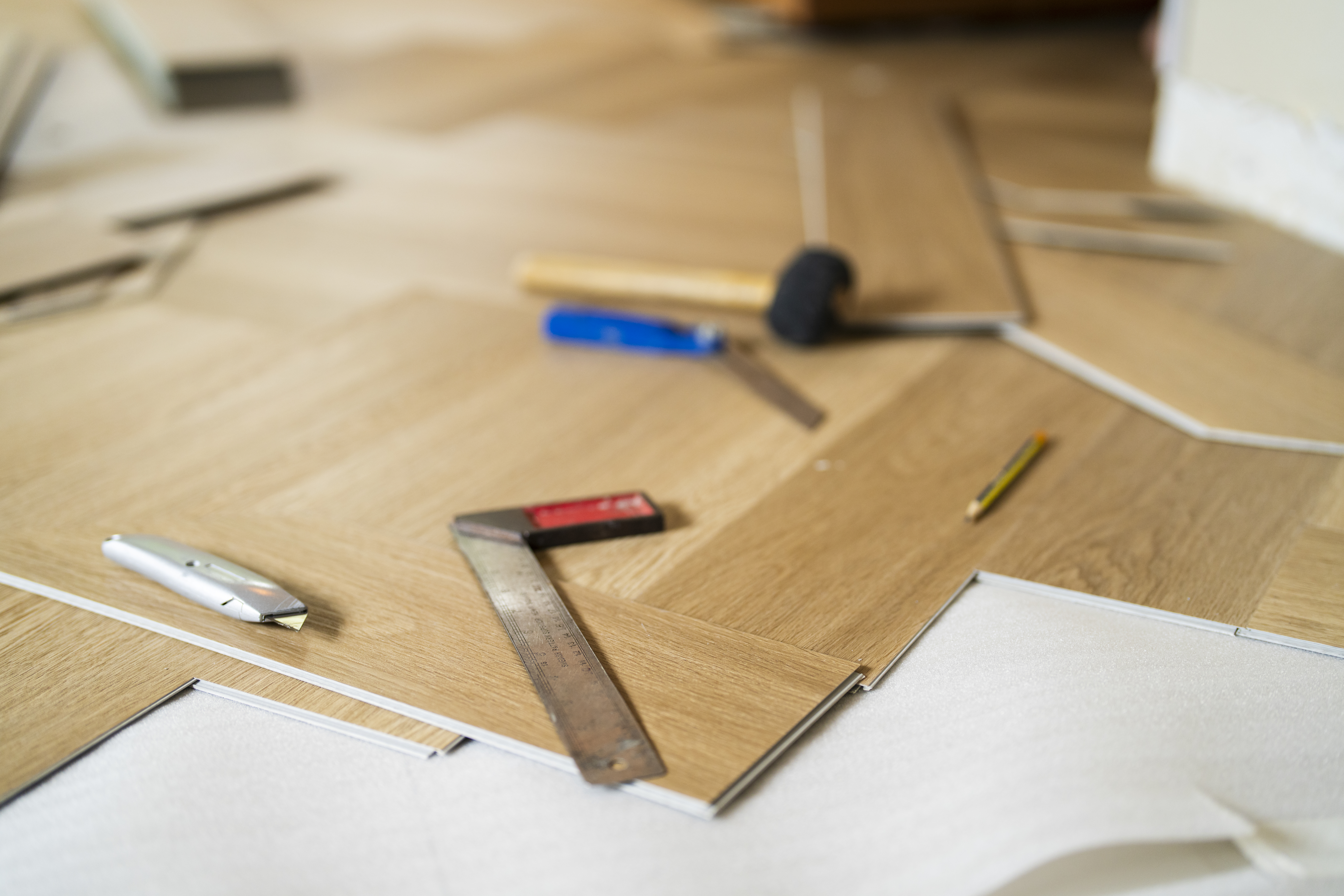
Both materials and labor determine hardwood floor installation costs. This guide breaks down all the prices you need to know before starting your new flooring project.
They’re similar, but not quite identical
Engineered hardwood and luxury vinyl planks both look like solid wood but have a few key differences.
Engineered hardwood has a higher cost and more maintenance needs.
For easy installation, LVP is the way to go.
LVP works well in damp locations like basements and bathrooms.
Choosing flooring for your home can be a big decision with lots of considerations. Today’s flooring options include engineered hardwood and luxury vinyl planks (LVP), both of which mimic the look of solid wood floors but without the high cost. Before deciding on engineered hardwood versus LVP it’s important to take a look at how they compare and how they’ll fit with your design aesthetic and lifestyle.
On the surface, engineered hardwood and luxury vinyl planks look strikingly similar, but a closer look reveals some key differences. Engineered hardwood flooring is topped with a wear layer of actual wood veneer, giving it the appearance and feel of solid hardwood floors. LVP, on the other hand, is vinyl, so even though it will appear to be real wood, it won’t have the same feel underfoot. Other key differences include costs, maintenance needs, installation, and durability.

Engineered hardwood is made from layers of plywood glued in perpendicular layers to form a core that’s then topped with a thin layer of wood veneer. Because the top layer is wood, this type of flooring is a good alternative to solid hardwood floors: It costs less while still accomplishing the same design goals. Here are the pros and cons of engineered hardwood flooring.
| Pros | Cons |
|---|---|
| Looks like real wood | More expensive than LVP |
| Costs less than solid hardwood | Requires more maintenance |
| Can be refinished | Installation requires woodworking tools |
Best for:
Homeowners who want the beauty of hardwood without the cost
Areas without much moisture, like bedrooms and living rooms
Homeowners willing to refinish the flooring periodically
When installed, engineered hardwood floors look very similar to solid hardwood floors. Because the top layer is actual wood veneer, you can also refinish engineered hardwood floors if they begin to wear out or if you want to change the finish or reseal them. Engineered hardwood is less expensive than solid hardwood floors because the majority of the plank is plywood rather than a solid piece of wood.
While engineered hardwood is moisture resistant, it’s not as resistant as LVPs because the core is still made from plywood and therefore not entirely immune to the dangers of water. Engineered hardwood will cost less than hardwood flooring, but because the wear layer is real wood, the type of wood will affect the cost of the flooring.

LVP mimics the look of hardwood floors, but they don’t actually contain any wood. The top layer is aluminum oxide, which makes the flooring resistant to scratches and scuff marks. The second layer is a transparent film to guard against ripping or tearing. Beneath the film is a design layer which is actually a printed sheet that looks like hardwood. Finally, the backing, which makes up the majority of the plank, consists of a vinyl core to give the plank stability.
Because the design layer is essentially a photo, LVPs can mimic the look of any type of hardwood. Taking a closer look at the pros and cons of luxury vinyl flooring will help you decide if it’s the right choice for your home.
| Pros | Cons |
|---|---|
| Mimics the look of any hardwood | May be distinguishable from real wood |
| Scratch, scrape, and scuff resistant | Can’t be refinished |
| Easy to install | Can tear or dent |
Best for:
Homes that need a durable alternative to hardwood floors
Moisture-prone areas like basements, bathrooms, and kitchens
Busy households with kids and pets
LVP flooring is an affordable alternative to engineered hardwood and solid hardwood floors. Because of the aluminum oxide wear layer and transparent film, they are resistant to scuffs and scratches. Depending on the quality of the design layer, they can appear to be real wood. Installing LVP is very easy and doesn’t require any specialized tools.
Even though LVPs can appear very similar to engineered hardwood flooring, it’s still not real wood. In some products, the image may not be as close to a real wood appearance as you would like. And even though there is a layer meant to resist tearing, it doesn’t mean that tearing is impossible. Another issue is that because vinyl is softer than hardwood, it’s possible for it to dent where heavy furniture rests for long periods of time.
When installed, engineered hardwood and LVP both give the appearance of a solid hardwood floor, but they each have a slight edge in different categories.
If you want the look of solid hardwood floors without the high cost, engineered hardwood is as close as you can get. The fact that engineered hardwood’s wear layer is wood veneer means that these flooring planks look exactly like hardwood floors. Even though LVPs are designed and manufactured to look nearly identical to wood flooring, they can’t quite match the real thing. They also can’t mimic the depth and warmth of hardwood flooring.
LVPs are durable, but they can still tear or rip. Engineered hardwood, meanwhile, comes with the strength of wood. They’re actually more durable than solid hardwood floors because the layers of plywood make them more moisture-resistant. Engineered hardwood can also be refinished if the wear layer is thick enough to be sanded down. Where LVP does gain a slight edge is the fact that it’s waterproof.
The cost to install LVP is significantly less than the cost to install engineered hardwood. LVP costs between $2.50 and $5 per square foot while engineered hardwood costs between $4 and $10 per square foot.
LVP is one of the easiest types of flooring to install and even comes in peel and stick versions. Other LVP installation methods include click-together or loose lay, and the flexible planks are easy to work with. Engineered hardwood has a tongue and groove design installed like solid hardwood. Installation methods include gluing or nailing the boards to the floor or installing them as a floating floor. If you’re not experienced with floor installation, you may want to hire a wood floor installer near you to tackle the job.
Both types of flooring are easy to maintain by sweeping or vacuuming regularly, but LVP comes out ahead because of its moisture resistance. You can use a wet mop to clean LVP, whereas engineered hardwood maintenance requires a damp mop and avoidance of chemicals that could damage the finish.
Engineered hardwood floors can last up to 50 years, while LVP has a lifespan of 20 to 30 years if it’s high-quality. Lower-quality LVP may only last five years or a little longer. Because engineered hardwood can be refinished to buff out scrapes and scratches and revive the finish, it’s more reliable for the long term.
From average costs to expert advice, get all the answers you need to get your job done.

Both materials and labor determine hardwood floor installation costs. This guide breaks down all the prices you need to know before starting your new flooring project.

It’s impossible to keep floors damage-free over the years. Thankfully, the cost to refinish hardwood floors is far less than the price tag to replace them altogether.

Hardwood floor repair costs depend on the problem. This guide breaks down common costs based on factors like the type of problem, repair method, and whether you hire a pro or DIY.

Get the look of hardwood at a fraction of the cost. This guide will help you understand the cost to install engineered hardwood floors in your home.

So long, floor flaws! Learn how to get scratches out of wood floors and reveal an inner beauty that’s waiting to impress.

If you want to avoid hiring a professional to refinish your floors, it can pay to learn how to restore hardwood floors without sanding.